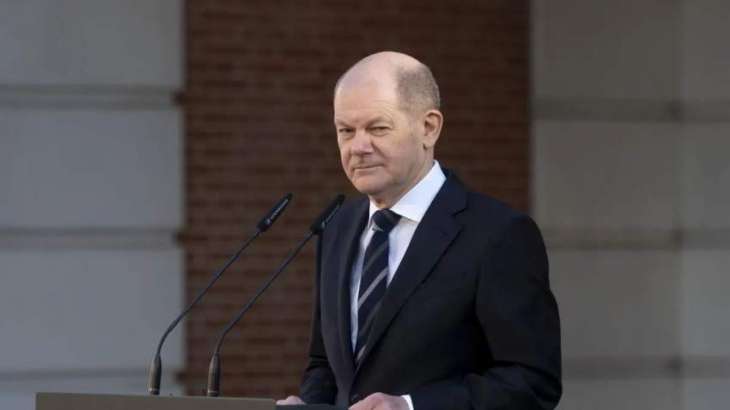German Chancellor Olaf Scholz announced on Thursday slashing the value-added tax (VAT) on gas to 7% from 19% as a relief measure for households and businesses
BERLIN (Pakistan Point News / Sputnik - 18th August, 2022) German Chancellor Olaf Scholz announced on Thursday slashing the value-added tax (VAT) on gas to 7% from 19% as a relief measure for households and businesses.
This decision comes amid plans to impose a so-called gas levy on consumers from October 1 to help gas suppliers cope with soaring import prices. According to German media, the surcharge will cost up to 400-600 Euros ($407-611) a year for a family of four.
"The government is unanimous in the opinion that gas consumers should not incur additional costs due to the mandatory VAT on gas utility bills ... That is why the government today decided to reduce the VAT rate on gas to 7% for a specified term. It will be in effect for as long as the gas levy is collected, that is until March 31, 2024," Scholz said.
This effort aims to relieve the pressure on German gas consumers much more than the financial burden of extra levies, Scholz noted.
The cabinet will also introduce a new package of relief measures for individuals and companies amid the unfolding energy crisis.
"The actual make-up of the package is discussed confidentially in the government. Fairness remains the key principle, so that the country is united in this crisis," Scholz said.
According to Stefan Kooths, the vice president of the Kiel Institute for the World Economy, the 12% cut in the VAT caused by fear of socio-political consequences is blurring the government's goals aimed at gas saving.
"This decision is eroding the main desired goal of the gas levy: to save gas. An important signal for this is the rise in gas prices. Now, politicians everywhere are slowing the increase in gas prices for consumers, fearing socio-political consequences. However, this threatens to fail to fulfill the savings tasks that would be necessary for reliable gas supply in priority areas," Kooths said in a statement obtained by Sputnik.
Kooths added that the tax cuts "are not a targeted tool to help those who have been hit hard by price increases," while the best solution would be to charge the VAT in full, and then direct profit to those who were in need as a result of rising costs.
The German government initially intended to introduce a VAT waiver on the gas surcharge. However, the plan raised legal objections from the European Union, prompting Germany to seek other means to support consumers.




